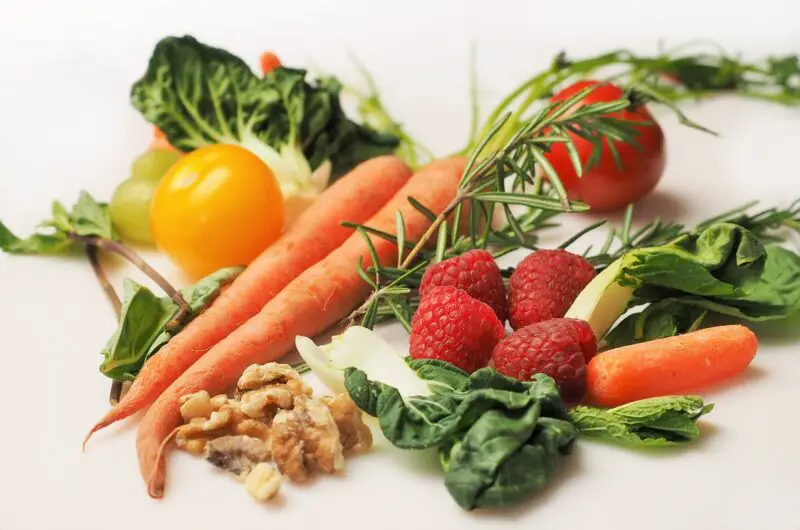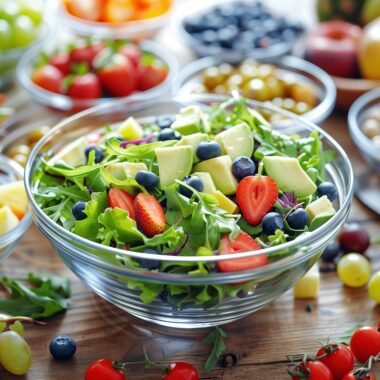In today’s fast-paced world, processed foods have become a staple in many diets. However, consuming whole, unprocessed foods is one of the best ways to maintain good health, prevent chronic diseases, and sustain energy levels. Processed foods are often loaded with preservatives, artificial ingredients, and excessive sodium, sugar, and unhealthy fats. On the other hand, natural and unprocessed foods provide the body with essential nutrients in their purest forms.
This article explores the best foods to eat that are not processed, why they are beneficial, and how you can incorporate them into your daily diet.
What Are Unprocessed Foods?
Unprocessed foods are those that remain as close as possible to their natural state. These foods do not undergo chemical processing, excessive refinement, or artificial modifications. They are typically free of added sugars, unhealthy fats, and preservatives. Examples include fresh fruits, vegetables, nuts, seeds, whole grains, legumes, and lean proteins.
Benefits of Eating Unprocessed Foods
- Nutrient Density – Whole foods contain essential vitamins, minerals, fiber, and antioxidants necessary for overall health.
- Better Digestion – Foods high in fiber and natural enzymes promote gut health and digestion.
- Weight Management – Whole foods are typically lower in calories and unhealthy fats, helping with weight control.
- Lower Risk of Chronic Disease – Unprocessed foods help reduce the risk of obesity, heart disease, type 2 diabetes, and certain cancers.
- Improved Energy Levels – Whole foods provide sustained energy without sugar crashes.
- Better Mental Health – Nutrient-rich diets support brain health and reduce the risk of anxiety and depression.
Now, let’s explore the best unprocessed foods to include in your diet.
Best Unprocessed Foods to Eat
1. Fresh Fruits
Fruits are packed with vitamins, fiber, and antioxidants that promote overall health. They contain natural sugars, which provide energy without the harmful effects of refined sugar. Some of the best fresh fruits include:
- Apples – High in fiber and vitamin C, apples promote gut health.
- Bananas – A great source of potassium, bananas help regulate blood pressure.
- Berries (Blueberries, Strawberries, Raspberries) – Rich in antioxidants that fight inflammation and protect against disease.
- Oranges – Loaded with vitamin C, oranges boost the immune system.
- Avocados – Although technically a fruit, avocados provide healthy fats and fiber.
2. Fresh Vegetables
Vegetables are among the most nutrient-dense foods, offering fiber, vitamins, and minerals with minimal calories. Some of the best vegetables include:
- Leafy Greens (Spinach, Kale, Swiss Chard, Romaine Lettuce) – Packed with iron, calcium, and vitamins A, C, and K.
- Broccoli – Contains antioxidants that help fight cancer and support heart health.
- Carrots – High in beta-carotene, which promotes eye health.
- Bell Peppers – Rich in vitamin C and antioxidants that strengthen immunity.
- Sweet Potatoes – Provide fiber and slow-digesting carbohydrates for sustained energy.
3. Whole Grains
Whole grains are an excellent source of fiber, which supports digestion and heart health. Unlike refined grains, whole grains retain their nutrient-rich bran and germ. The best unprocessed grains include:
- Brown Rice – Provides complex carbohydrates, fiber, and minerals.
- Quinoa – A complete protein containing all nine essential amino acids.
- Oats – High in soluble fiber, oats help lower cholesterol.
- Barley – Supports digestion and heart health.
- Millet – A gluten-free grain rich in fiber, protein, and magnesium.
4. Nuts and Seeds
Nuts and seeds provide healthy fats, protein, fiber, and essential nutrients. They are great for heart health and keeping you full between meals. The best options include:
- Almonds – High in vitamin E and healthy fats.
- Walnuts – Rich in omega-3 fatty acids, which support brain health.
- Chia Seeds – Packed with fiber, protein, and omega-3s.
- Flaxseeds – Excellent for digestion and heart health.
- Pumpkin Seeds – High in magnesium and zinc for immune support.
5. Legumes and Beans
Legumes and beans are affordable and nutritious sources of plant-based protein, fiber, and essential nutrients. Some of the best unprocessed legumes include:
- Lentils – Provide protein, iron, and fiber to support digestion and heart health.
- Chickpeas (Garbanzo Beans) – Great for making hummus and salads, chickpeas offer protein and fiber.
- Black Beans – Rich in antioxidants and fiber, supporting gut health.
- Kidney Beans – Provide protein and help regulate blood sugar levels.
- Green Peas – Contain protein, fiber, and vitamins A and C.
6. Lean Proteins
Unprocessed sources of protein are crucial for muscle growth, metabolism, and overall health. The best whole-food protein sources include:
- Eggs – A complete protein packed with vitamins and minerals.
- Fish (Salmon, Tuna, Mackerel, Sardines) – High in omega-3 fatty acids for brain and heart health.
- Chicken (Organic, Free-Range) – A lean source of protein without added hormones.
- Grass-Fed Beef – Contains more omega-3s and fewer unhealthy fats than conventionally raised beef.
- Turkey – A lean protein source with essential amino acids.
7. Dairy (Unprocessed and Fermented)
While many dairy products are heavily processed, there are unprocessed options that provide excellent nutrition. Look for organic, full-fat versions without added sugars or preservatives. Some of the best dairy options include:
- Greek Yogurt (Plain, No Added Sugar) – Rich in probiotics for gut health.
- Raw Milk – Contains natural enzymes and probiotics.
- Cheese (Aged, Organic) – A great source of protein, calcium, and healthy fats.
- Cottage Cheese – High in protein and calcium, supporting muscle and bone health.
8. Healthy Fats
Healthy fats play a crucial role in brain function, hormone production, and overall well-being. The best unprocessed fat sources include:
- Olive Oil (Extra Virgin, Cold-Pressed) – Rich in heart-healthy monounsaturated fats.
- Coconut Oil – Supports metabolism and energy production.
- Avocado – Provides healthy monounsaturated fats and fiber.
- Ghee (Clarified Butter) – A better alternative to processed butter with healthy fats.
9. Herbs and Spices
Herbs and spices not only enhance flavor but also provide medicinal benefits. Some of the best options include:
- Turmeric – Contains curcumin, a powerful anti-inflammatory compound.
- Ginger – Aids digestion and reduces inflammation.
- Garlic – Supports immune function and heart health.
- Cinnamon – Helps regulate blood sugar levels.
- Basil, Oregano, Thyme, Rosemary – Loaded with antioxidants and essential oils.
10. Natural Beverages
Many commercial drinks contain added sugars and artificial ingredients. Instead, opt for these natural beverages:
- Water – The best hydration source for overall health.
- Herbal Teas (Green Tea, Chamomile, Peppermint) – Provide antioxidants and various health benefits.
- Coconut Water – A natural electrolyte drink.
- Homemade Smoothies – Blended with whole fruits, vegetables, and healthy proteins.
- Freshly Squeezed Juices – Contain natural vitamins and minerals (avoid store-bought versions with added sugar).
How to Incorporate Unprocessed Foods into Your Diet
- Plan Your Meals – Create a meal plan that includes whole foods and minimizes processed items.
- Shop the Perimeter – In grocery stores, fresh produce, dairy, and proteins are usually along the outer aisles, while processed foods are in the middle.
- Read Ingredient Labels – Avoid foods with added sugars, preservatives, and artificial ingredients.
- Cook at Home – Prepare meals from scratch using fresh, whole ingredients.
- Snack Wisely – Choose nuts, fresh fruits, or yogurt instead of processed chips or candy.
- Stay Hydrated – Drink plenty of water and herbal teas instead of sugary sodas or energy drinks.
Eating unprocessed foods is one of the best ways to support overall health and well-being. By incorporating fresh fruits, vegetables, whole grains, nuts, seeds, legumes, lean proteins, and healthy fats into your diet, you can enjoy a nutrient-rich lifestyle that reduces the risk of chronic diseases. The transition to a whole-food diet may take time, but the benefits are worth it—better energy levels, improved digestion, and long-term wellness.
Embrace unprocessed foods and experience the powerful impact they can have on your health!
Additional Tips for Maintaining a Whole-Food Diet
Transitioning to an unprocessed food diet may seem challenging at first, but with the right approach, it can become a sustainable lifestyle. Here are some additional strategies to help you maintain a whole-food diet long-term:
1. Meal Prepping for Success
Preparing meals in advance ensures that you always have nutritious food ready, reducing the temptation to opt for processed alternatives. Some meal-prepping strategies include:
- Batch cooking: Cook large portions of grains, proteins, and vegetables for the week.
- Portioning meals: Use containers to store pre-prepped meals for easy grab-and-go options.
- Making homemade snacks: Prepare healthy snacks like trail mix, energy balls, or sliced veggies with hummus.
2. Growing Your Own Food
Starting a small home garden allows you to have fresh, unprocessed produce at your fingertips. Even if you don’t have a yard, you can grow herbs, lettuce, and tomatoes in pots or indoor hydroponic systems.
3. Choosing Organic and Local Foods
Whenever possible, opt for organic and locally sourced foods. Organic produce is grown without synthetic pesticides and fertilizers, making it a healthier choice. Farmers’ markets and community-supported agriculture (CSA) programs are excellent sources for fresh, seasonal foods.
4. Cooking with Whole, Natural Ingredients
Cooking at home gives you full control over the ingredients in your meals. Some cooking habits that support an unprocessed diet include:
- Using fresh herbs and spices instead of pre-packaged seasoning mixes that may contain additives.
- Making homemade sauces and dressings instead of using store-bought versions with preservatives and sugar.
- Avoiding refined oils and opting for healthier options like olive oil, coconut oil, or ghee.
5. Being Mindful of Sugar Intake
Even some seemingly healthy foods contain hidden sugars. To reduce sugar intake:
- Avoid sugary drinks like sodas and energy drinks.
- Read labels carefully for added sugars under different names (e.g., high fructose corn syrup, cane syrup, dextrose).
- Use natural sweeteners like honey, maple syrup, or dates in moderation.
6. Eating Seasonal and Diverse Foods
Eating a variety of seasonal foods ensures that your diet remains nutritionally balanced. Seasonal produce is fresher, tastier, and often more affordable.
7. Staying Hydrated with Natural Beverages
Water should be the primary source of hydration, but if you want variety, consider:
- Infused water with lemon, cucumber, or berries for added flavor.
- Homemade herbal teas that provide antioxidants and relaxation.
- Bone broth for additional nutrients and gut health benefits.
8. Listening to Your Body
One of the best aspects of an unprocessed diet is that it encourages mindful eating. Pay attention to how your body responds to different foods, and adjust your diet accordingly.
Final Thoughts
Shifting toward a whole-food, unprocessed diet is one of the best choices you can make for your long-term health. By focusing on fresh fruits, vegetables, whole grains, nuts, seeds, legumes, lean proteins, and healthy fats, you can nourish your body with essential nutrients while avoiding harmful additives.
This lifestyle is not about perfection but about making conscious, sustainable food choices. Start by incorporating more whole foods into your meals, cooking at home, and staying mindful of what you consume. Over time, eating unprocessed foods will become second nature, leading to better energy, improved digestion, and a reduced risk of chronic disease.
By making whole foods the foundation of your diet, you are investing in a healthier, more vibrant future. Start today and enjoy the benefits of real, natural nutrition!


















